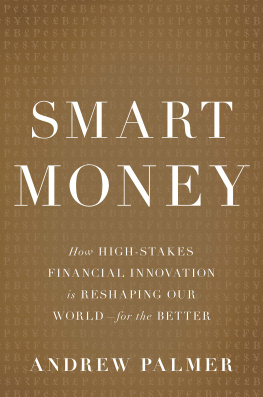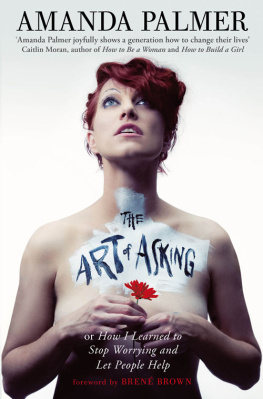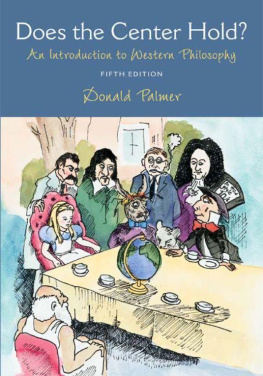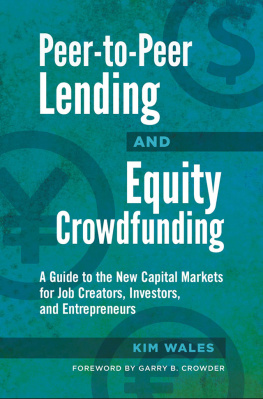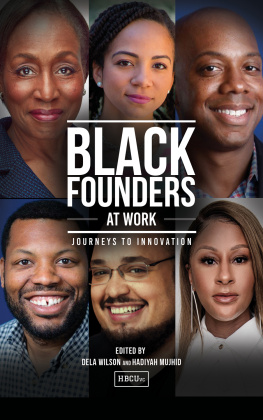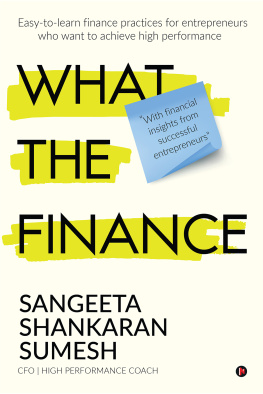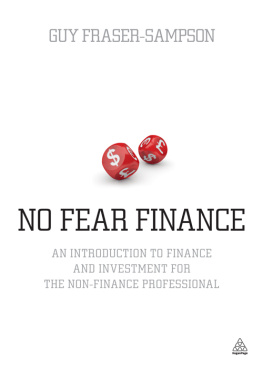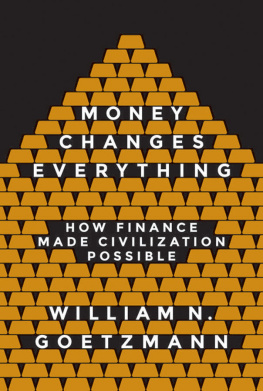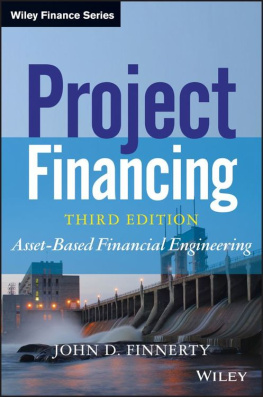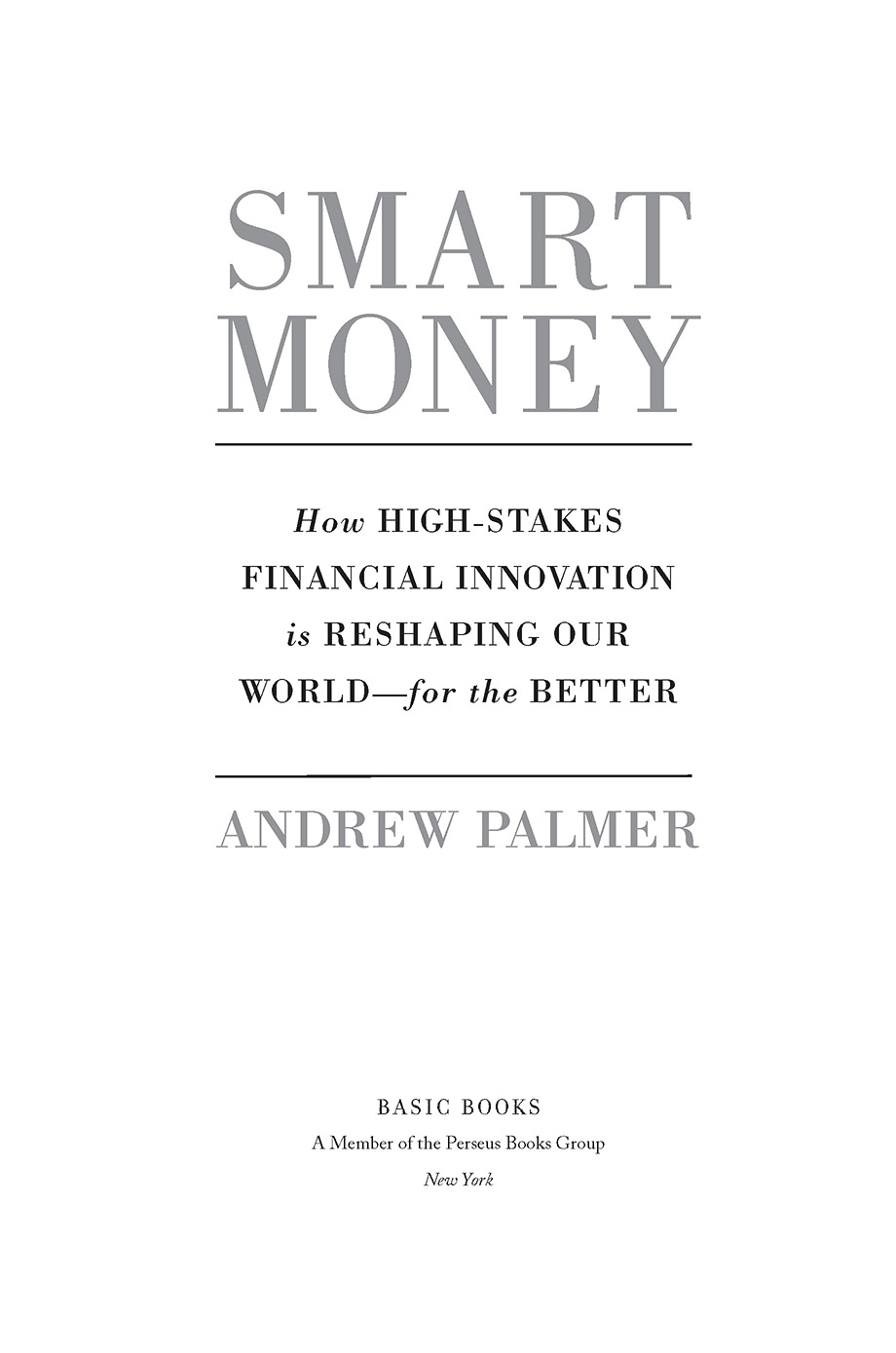
Copyright 2015 by Andrew Palmer
Published by Basic Books,
A Member of the Perseus Books Group
All rights reserved. Printed in the United States of America. No part of this book may be reproduced in any manner whatsoever without written permission except in the case of brief quotations embodied in critical articles and reviews. For information, address Basic Books, 250 West 57th Street, New York, NY 10107.
Books published by Basic Books are available at special discounts for bulk purchases in the United States by corporations, institutions, and other organizations. For more information, please contact the Special Markets Department at the Perseus Books Group, 2300 Chestnut Street, Suite 200, Philadelphia, PA 19103, or call (800) 810-4145, ext. 5000, or e-mail .
Designed by Cynthia Young
Library of Congress Cataloging-in-Publication Data
Palmer, Andrew, 1970
Smart money : how high-stakes financial innovation is reshaping our world-for the better / Andrew Palmer.
pages cm
Includes bibliographical references and index.
ISBN 978-0-465-06472-4 (hardback) ISBN 978-0-465-04059-9 (e-book) 1. Banks and bankingTechnological innovations. 2. FinanceTechnological innovations. I. Title.
HG1709.P35 2015
332.1dc23
2014041326
10 9 8 7 6 5 4 3 2 1
For Julia, Eliza, Joe, and Kasia
W hen I was offered the job of the Economist s banking correspondent in the early summer of 2007, my reaction was one of apprehension. Banking was not an industry that I knew anything about. I had a bank account and a mortgage, knew a couple of friends who had gone into the industry and owned much bigger houses than mine, and that was about it. Grappling with the ins and outs of bond markets and bank balance sheets was not just going to be unfamiliar groundI assumed that it was also going to be boring as hell.
As far as I was concerned, this was an industry that remorselessly piled up profits. The previous few years had seen an epic expansion of bank returns. The largest one thousand banks in the world reported aggregate pretax profits of almost $800 billion in fiscal year 20072008, almost 150 percent higher than in 20002001. Banking boasted the largest profit pool in the world in 2006, according to McKinsey, a consulting firm, at 11 percent of the global total.
My professional life was about to consist of interviewing people who made money hand over fist and would presumably continue to do so for as long as I wrote about them. They might be greedy, they might be arrogant, but they certainly knew what they were doing. I didnt realize it at the time, but I was already thinking like a financial regulator.
Fears of a life of tedium turned out to be a bit misplaced. I started on the banking beat in September 2007. The summer had already seen large parts of the financial markets take fright. The downturn in Americas subprime-mortgage market had made it impossible for investors to value their holdings of securities backed by these types of loans. The interbank markets, where banks loan money to each other, had suddenly seized up, as institutions realized that they could not be sure of the standing of their counterparties. Something unexpected was happening to the moneymaking machine.
My very first week in the job coincided with a deposit run at Northern Rock, a British lender that came unstuck when it could no longer fund itself in the markets. Some of my earliest interviews on the beat were with people dusting off the manual on how to deal with bank runs. Organizing guide ropes inside bank branches was one tactic: better that than have people spill out onto the street, signaling to others that they should join the line. One HSBC veteran happily recounted stories of the financial crisis that gripped Asia in the late 1990s, when tellers were instructed to bring piles of cash into view to reassure people that banks were overflowing with money.
Tales of improvisation from Asia were not supposed to be relevant to the Wests ultrasophisticated financial system. But far worse was to come. A chain of events was under way that would lead in time to the collapse of Lehman Brothers, a huge US investment bank, state takeovers of swaths of the rich worlds banking systems, a deep global recession, and the Eurozone debt crisis. I observed these later phases of the crisis from the position of the Economist s finance editor, a post that I held from July 2009 until October 2013.
The crisis would lead to a complete reversal in public attitudes toward the financial industry. The decade leading up to the crisis was one in which finance was lionized. Policy makers applauded the march of new techniques, such as securitization, that appeared to send risk away from the banks and spread it more evenly throughout the financial system. Belief in the efficiency of markets was so pervasive that the skeptics were both few in number and easily dismissed.
The events of the past few years have shattered the belief of outsiders in finances infallibility. That is an entirely good thing. The system is far less Darwinian than the bankers would like to believe. Banking is not the only industry that gets government handoutsin October 2013 the US government booked a loss on the $50 billion bailout of General Motors, and I dont see much public discussion of the evils of the car industrybut it has clearly benefited from a safety net that others do not have. Nor is it really the law of the jungle for individuals in banking. I have met a lot of very bright people in the financial industry, but I have also met some very mediocre ones, and pretty much all of them seem to remain employable.
But when things go so badly wrong, the pendulum almost inevitably swings too far in the other direction. Another type of consensus has emerged, one in which finance is demonized, in which bankers are generally bad, in which there is a socially useful bit of the industry that doles out loans to individuals and businesses, and the rest of it is dangerous, unnecessary gambling. Such anger is understandable. But it also has the effect of distorting the public view of the industry.
***
CHRIS SHEPARD IS THE kind of person that people have in mind when they lament the pull of finance for societys brightest minds. The youthful American used to wear a lab coat working for Genentech, a biotechnology company whose stated mission is to develop drugs to address significant unmet medical needs. You dont get much more noble than that. Yet Shepard turned his back on the bench, first for a master of business administration (MBA) and a spell in management consulting and then for the world of high finance. His conversation is peppered with references to equity tranches and bond coupons, balance-sheet volatility and payment triggers.
Shepard founded a venture called Structured Bioequity (SBE). The problem he was trying to address is the harm that can be done to a small biotech firm if one of its drugs fails during clinical trials. Clinical trials are designed to gradually widen the pool of people that a new drug is tested on, and their results are very unpredictable. About 85 percent of therapies fail in early clinical trials. Shepard was particularly focused on the risks involved in Phase II trials, when tests move from a very small group of human guinea pigs to a larger one.
For a very big pharmaceutical firm, with deep pockets and a fatter pipeline of new drugs, a failed trial need not be the end of the road; it can write another check in order to keep development teams together. For smaller firms, which often have no more than two or three drugs in the queue, the damage caused by an unsuccessful clinical trial can be terminal. If the lead drug of one of these firms fails, the entire value of the company can be lost, and it may well fold. The knowledge gained from working on a particular drug scatters, along with the chances of a better outcome the next time around.

